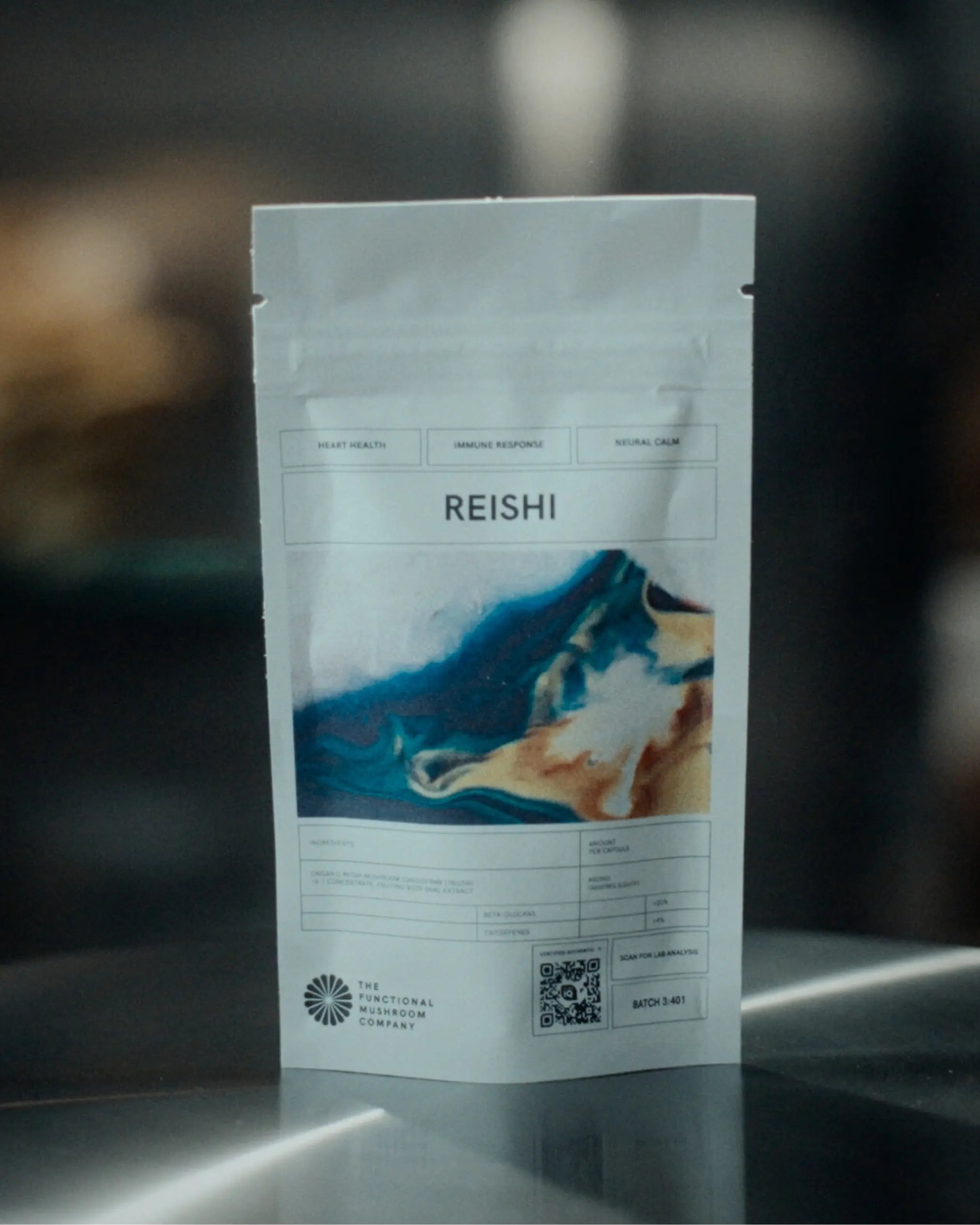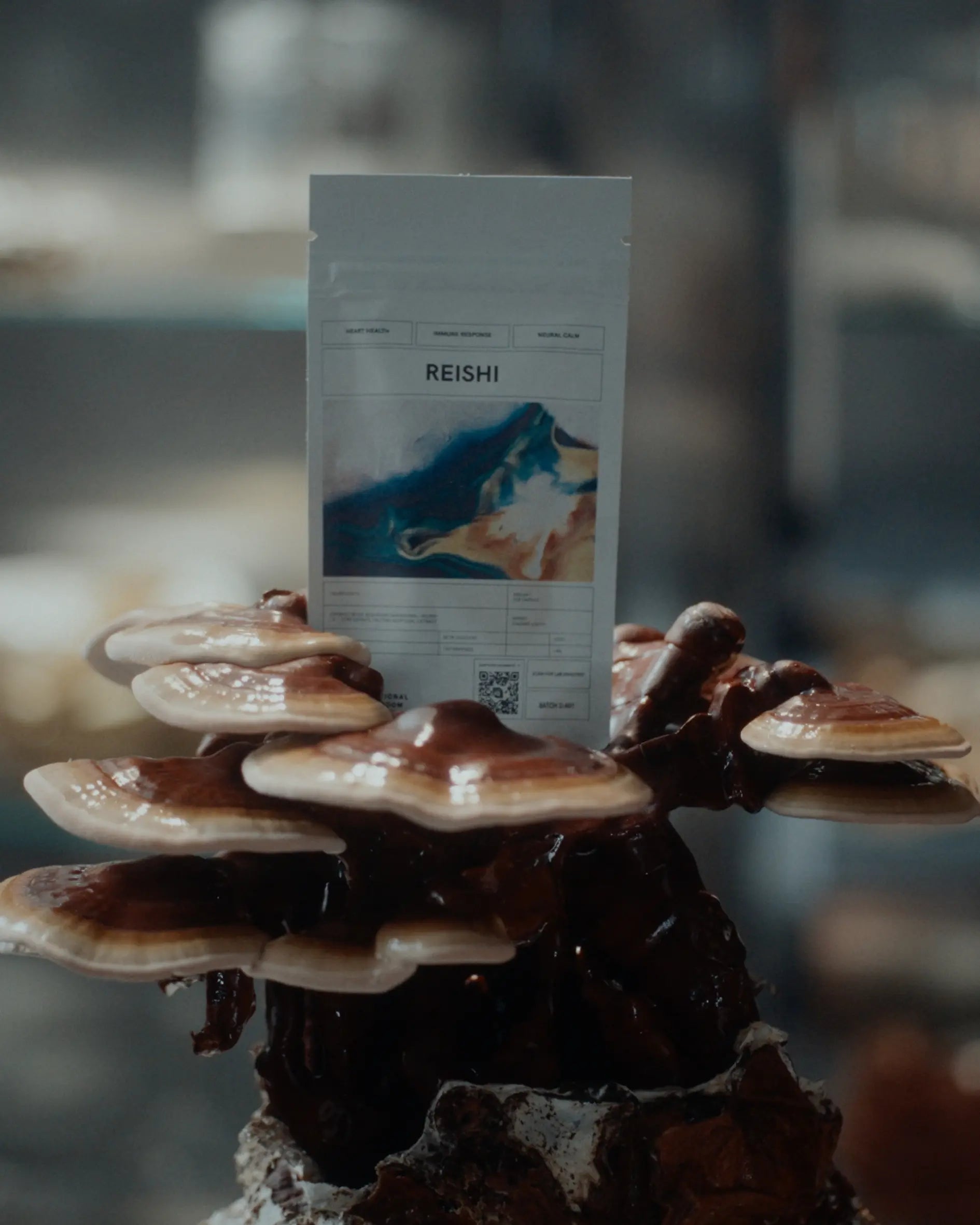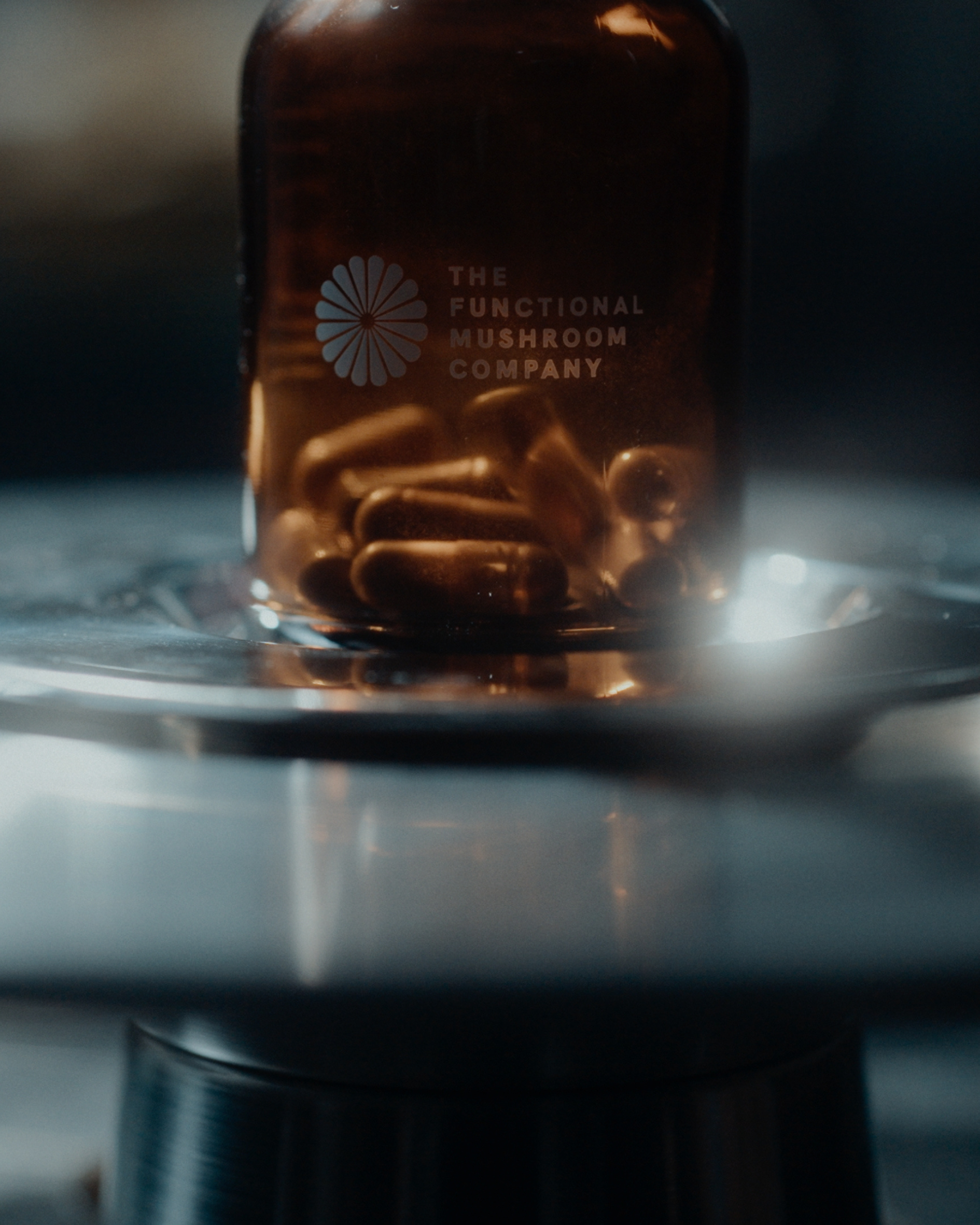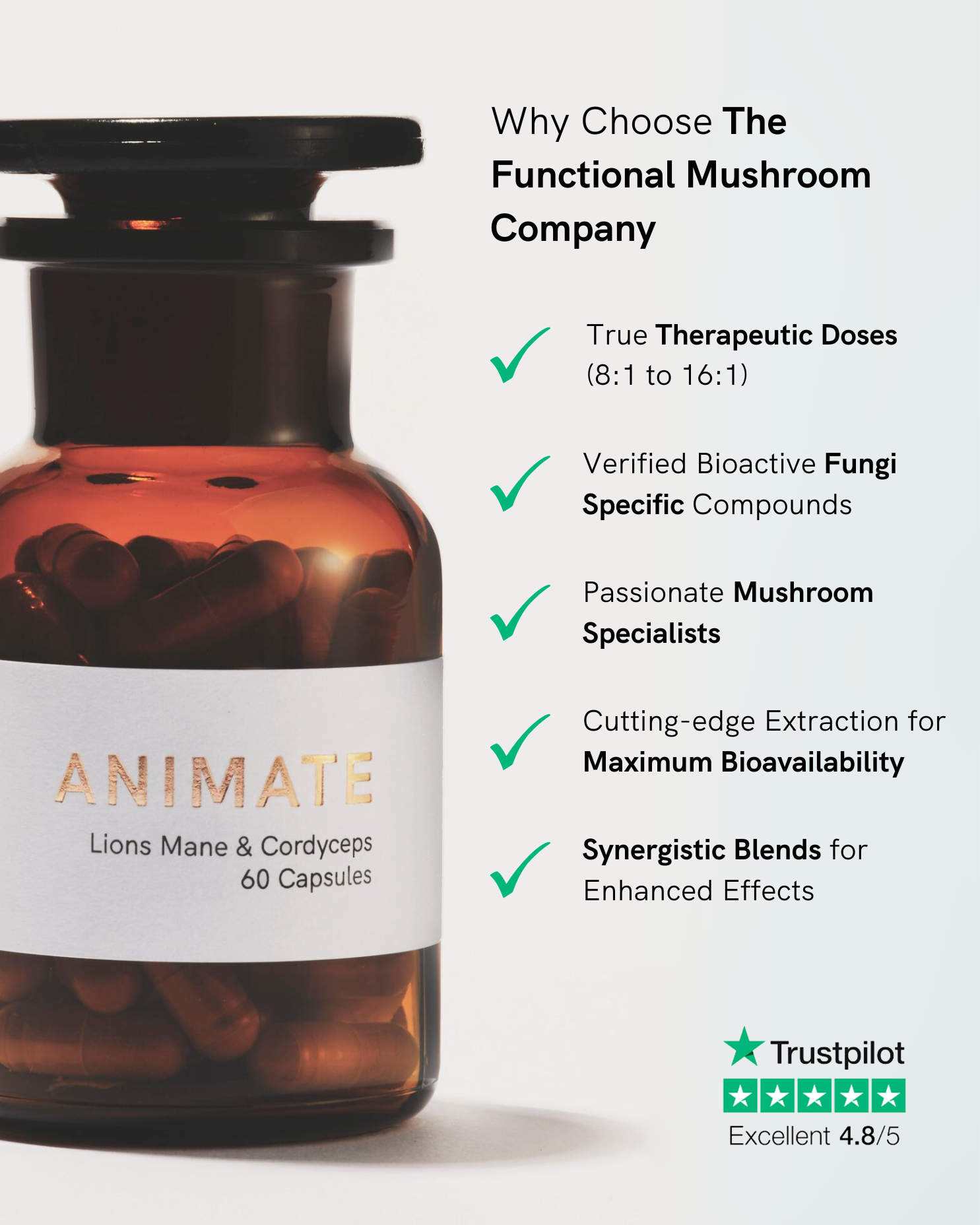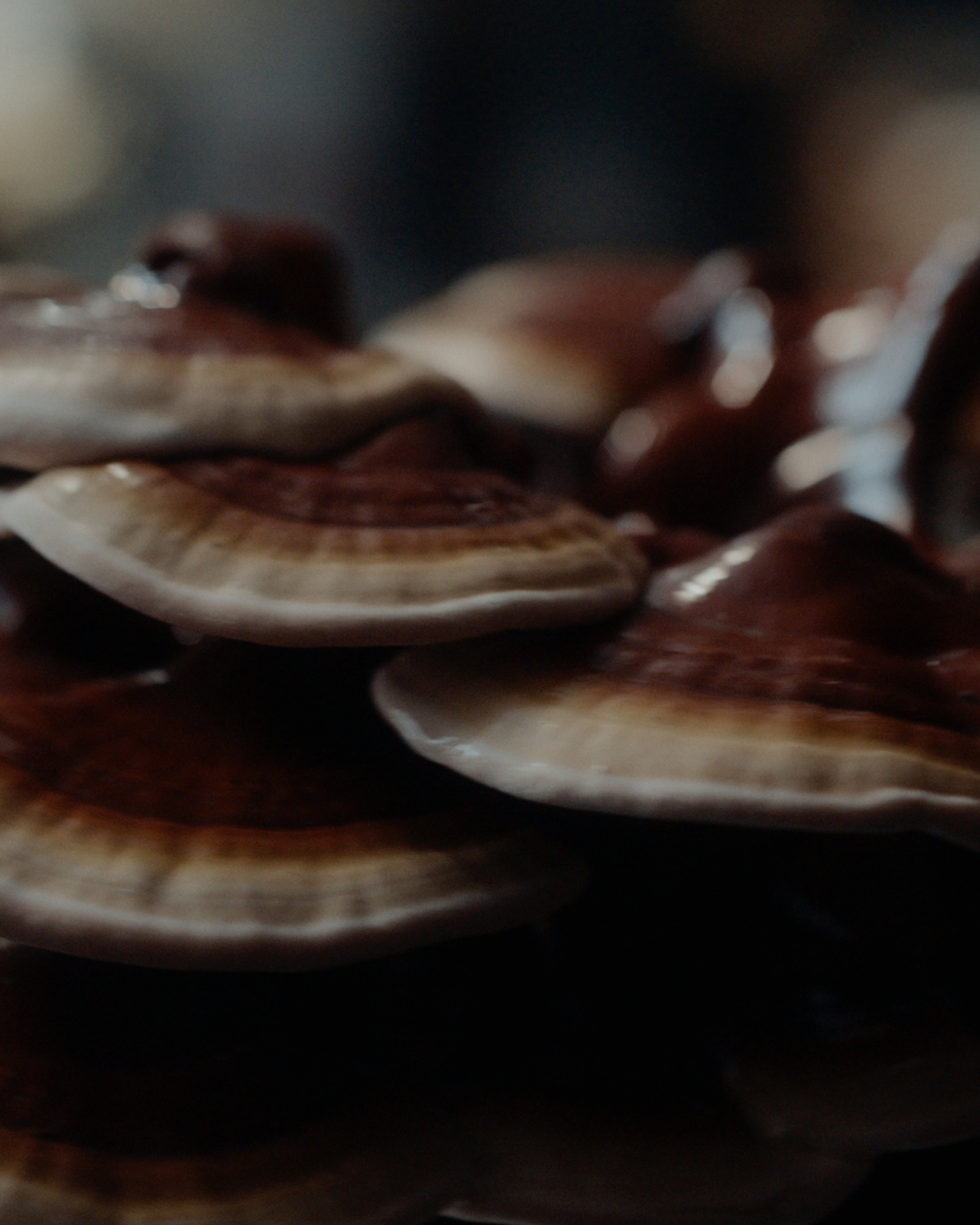
Reishi
Mushroom Index
As the ‘Mushroom of Immortality’ in ancient lore, and a focus of cutting-edge clinical studies today, Reishi elegantly straddles the worlds of myth and medicine.

Overview
reishi / Ganoderma lucidum
Reishi is a glossy polypore mushroom that grows as a reddish-brown conk on hardwood trees. It has a fan-shaped cap and the texture of lacquered mahogany. An iconic species long revered in Asia for its numerous health-giving benefits, Reishi is as familiar to the East as the apple is to the West.
Modern research has now revealed much of Reishi’s diverse pharmacology. It is rich in triterpenoids, polysaccharides, and other fungal compounds that provide immuno-modulating, anti-inflammatory, and cardioprotective effects. Moreover, ongoing research is unveiling its adaptogenic potential for stress reduction and sleep improvement, furthering its status as a powerhouse of medicinal mycology.
Other names:
- Lingzhi - “Spiritual Mushroom” in China
- Yeongji - "Mushroom of Immortality" in Korea
- Mannentake - “10,000-year Mushroom” in Japan
Benefits

Promotes stress relief and improved sleep

Supports immune function

May exhibit anticancer properties

Supports cardiovascular health

History of Use
Reishi / Ganoderma lucidum
Often depicted in ancient art and folklore, and known colloquially as the “Mushroom of Immortality”, Reishi was first recorded as a tonic herb in the Shen Nong Ben Cao Jing - the foundational text of Chinese materia medica written circa 100 BCE.
Ancient Taoists called Reishi the “Elixir of Life” and claimed it calmed the spirit, strengthened Qi energy, and promoted longevity. Chinese royalty treasured Reishi so much they restricted its use to the upper classes.
reishi / ganoderma lucidum
Key Active Compounds

Selected Clinical Studies
reishi / ganoderma lucidum
1. Ganoderma lucidum (Reishi) exerts anti-tumor effects on various cancer cell lines (2010)
Conditions: In vitro studies on multiple cancer cell lines
Effect: Reishi extract showed anti-tumor effects, suggesting potential in cancer treatment and prevention
2. A Randomized, Placebo-Controlled, Multicenter Study of Ganoderma lucidum(W.Curt.:Fr.) Lloyd(Aphyllophoromycetideae) Polysaccharides(Ganopoly) in Patients with Advanced Lung Cancer(2008)
Conditions: Involved 60 patients with advanced lung cancer, using 5.4 grams of Ganopoly daily
Effect: Improved immune function and quality of life in patients with advanced lung cancer
3. Effects of Ganoderma lucidum(Reishi) supplementation on sleep quality and heart rate variability in individuals with sleep disturbances: A randomized, double-blind, placebo-controlled trial(2020)
Conditions: Involved 50 participants with sleep disturbances, using 1.2 grams of Reishi spore powder daily
